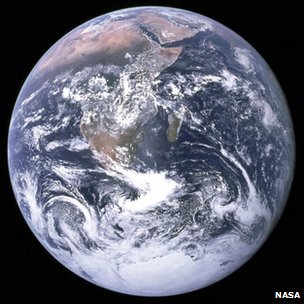Space law, law, regulations, space rules, space cooperation, international law for space, space junk, space pollution, space treaties: Humanity has a Manifest Destiny in Space. Humanity needs laws for cooperation in space.
There are more than 9,000 tonnes of space debris orbiting the Earth, according to the European Space Agency. The orbital environment is like a natural resource - and if we don’t clean it up, then we are polluting something that we benefit from all the time, and all need.
There are so many pieces of space debris the International Space Station and other active satellites have had to move out of their way, with increasing frequency.
With an increasing number of governments and private companies capable of launching satellites, the space around the planet is beginning to get congested. Some estimates say that fewer than half of the satellites currently in orbit are working. So what can be done to stop these broken machines becoming a threat to those that we still rely on?
Increasing amounts of debris orbiting Earth have prompted a call by scientists for an international agreement to limit the growth of space junk. Without it, they fear large parts of Earth's orbit will become unusable.
Scientists have called for a legally-binding treaty to ensure Earth’s orbit isn’t irreparably harmed by the future expansion of the global space industry.
In the week that nearly 200 countries agreed to a treaty to protect the High Seas after a 20-year process, the experts believe society needs to take the lessons learned from one part of our planet to another.
The number of satellites in orbit is expected to increase from 9,000 today to over 60,000 by 2030, with estimates suggesting there are already more than 100 trillion untracked pieces of old satellites circling the planet. While such technology is used to provide a huge range of social and environmental benefits, there are fears the predicted growth of the industry could make large parts of Earth’s orbit unusable.
Writing in the journal Science, an international collaboration of experts in fields including satellite technology and ocean plastic pollution say this demonstrates the urgent need for global consensus on how best to govern Earth’s orbit.
They acknowledge that a number of industries and countries are starting to focus on satellite sustainability, but say this should be enforced to include any nation with plans to use Earth’s orbit. Any agreement, they add, should include measures to implement producer and user responsibility for satellites and debris, from the time they launch onwards. Commercial costs should also be considered when looking at ways to incentivise accountability. Such considerations are consistent with current proposals to address ocean plastic pollution as countries begin negotiations for the Global Plastics Treaty.
The experts also believe that unless action is taken immediately, large parts of our planet’s immediate surroundings risk the same fate as the High Seas where insubstantial governance has led to overfishing, habitat destruction, deep-sea mining exploration, and plastic pollution.
